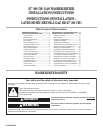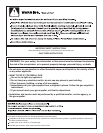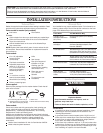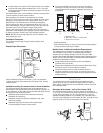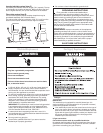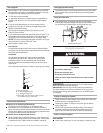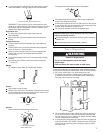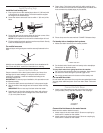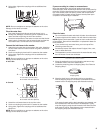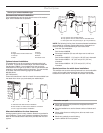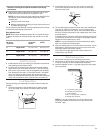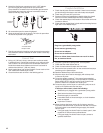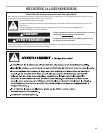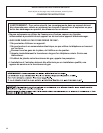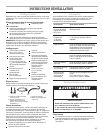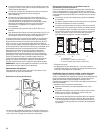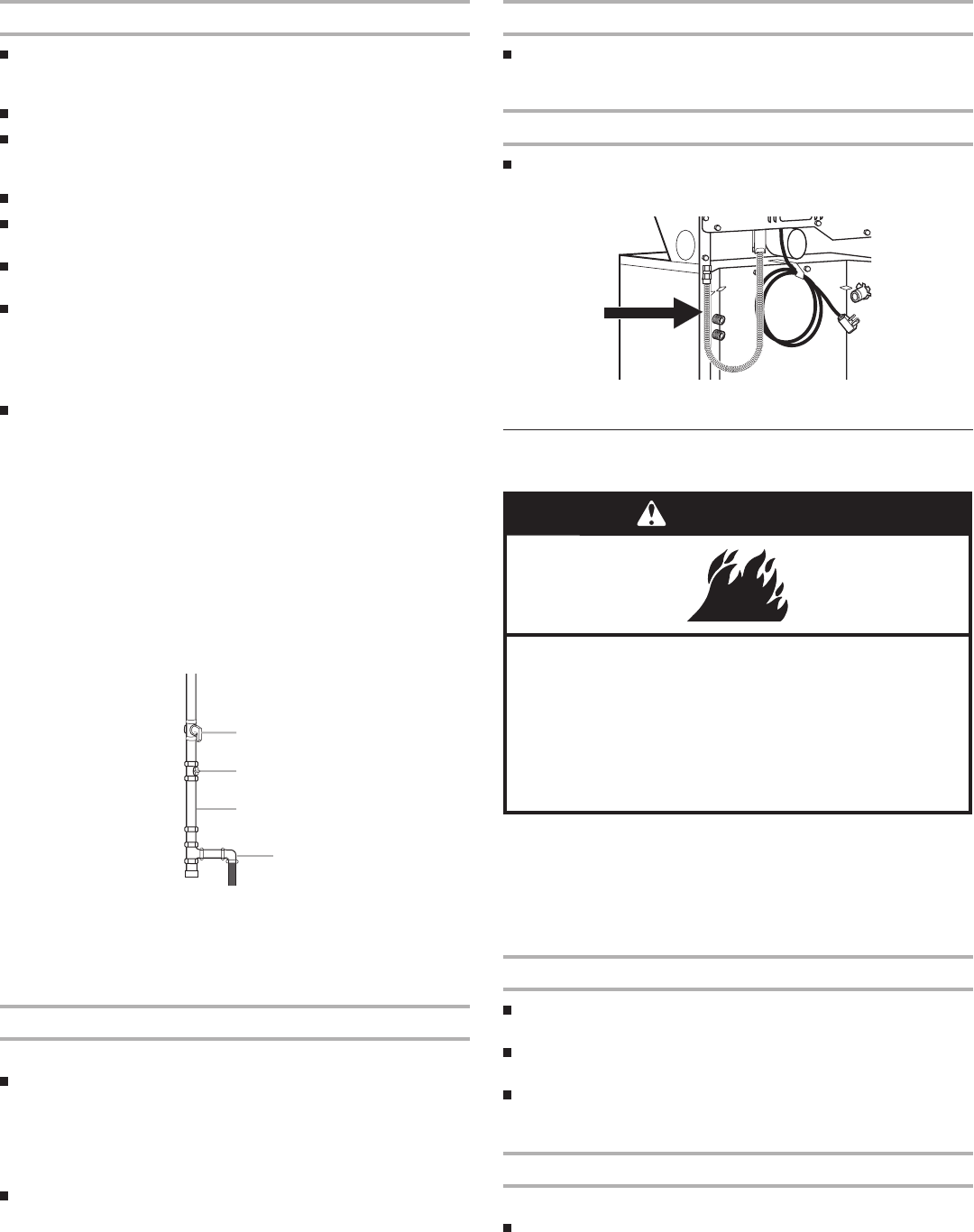
6
Gas supply line
Must include " NPT minimum plugged tapping accessible
for test gauge connection, immediately upstream of the gas
connection to the washer/dryer (see illustration).
" IPS pipe is recommended.
" approved aluminum or copper tubing is acceptable for
lengths under 20 ft (6.1 m) if local codes and gas supplier
permit.
If you are using Natural gas, do not use copper tubing.
Lengths over 20 ft (6.1 m) should use larger tubing and a
different size adapter fitting.
Gas supply line coupling must be 34" (864 mm) to 37"
(940 mm) from the floor.
If your washer/dryer has been converted to use LP gas, " LP
compatible copper tubing can be used. If the total length of
the supply line is more than 20 ft (6.1 m), use larger pipe.
NOTE: Pipe-joint compounds that resist the action of LP gas
must be used. Do not use TEFLON
®†
tape.
Must include a shutoff valve:
In the U.S.A.:
An individual manual shutoff valve must be installed within
six (6) feet (1.8 m) of the dryer in accordance with the National
Fuel Gas Code, ANSI Z223.1.
In Canada:
An individual manual shutoff valve must be installed in
accordance with the B149.1, Natural Gas and Propane
Installation Code. It is recommended that an individual
manual shutoff valve be installed within six (6) feet (1.8 m)
of the dryer.
The l
ocation should be easy to reach for opening and closing.
Burner input requirements
Elevations up to 10,000 ft (3,048 meters):
The design of this washer/dryer is certified by CSA
International for use at altitudes up to 10,000 ft (3,048 m)
above sea level at the Btu rating indicated on the model/serial
number plate. Burner input adjustments are not required when
the dryer is operated up to this elevation.
Elevations above 10,000 ft (3,048 meters):
When installed above 10,000 ft (3,048 m), a 4% reduction of
the burner Btu rating shown on the model/serial number plate
is required for each 1,000 ft (305 m) increase in elevation.
Gas supply pressure testing
The washer/dryer must be disconnected from the gas supply
piping system during pressure testing at pressures greater
than ½ psi.
Dryer gas connection
This washer/dryer is equipped with its own permanent,
flexible gas connector, design-certified by CSA International,
for connecting the washer/dryer to the gas supply line.
Flexible gas connector
Venting Requirements
WARNING: To reduce the risk of fire, this washer/dryer
MUST BE EXHAUSTED OUTDOORS.
IMPORTANT: Observe all governing codes and ordinances.
The dryer exhaust must not be connected into any gas vent,
chimney, wall, ceiling, attic, crawlspace, or a concealed space
of a building.
If using an existing vent system
Clean lint from the entire length of the system and make sure
exhaust hood is not plugged with lint.
Replace any plastic or metal foil vent with rigid or flexible
heavy metal vent.
Review Vent system chart. Modify existing vent system if
necessary to achieve the best drying performance. Only
rigid or flexible metal vent shall be used for exhausting.
If this is a new vent system
Vent material
Use a heavy metal vent. Do not use plastic or metal foil vent.
A. Gas shutoff valve
B. " NPT plugged tapping
C. ½" NPT gas supply line
D. Gas supply line coupling 34" (864 mm) min.
to 37" (940 mm) max. from floor
†
®TEFLON is a registered trademark of E.I. Du Pont De Nemours and Company.
A
B
C
D
WARNING
Fire Hazard
Use a heavy metal vent.
Do not use a plastic vent.
Do not use a metal foil vent.
Failure to follow these instructions can result in death
or fire.
1
⁄8
1
⁄2
3
⁄8
3
⁄8
1
⁄8



